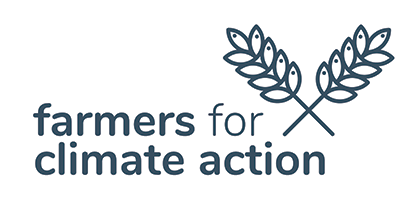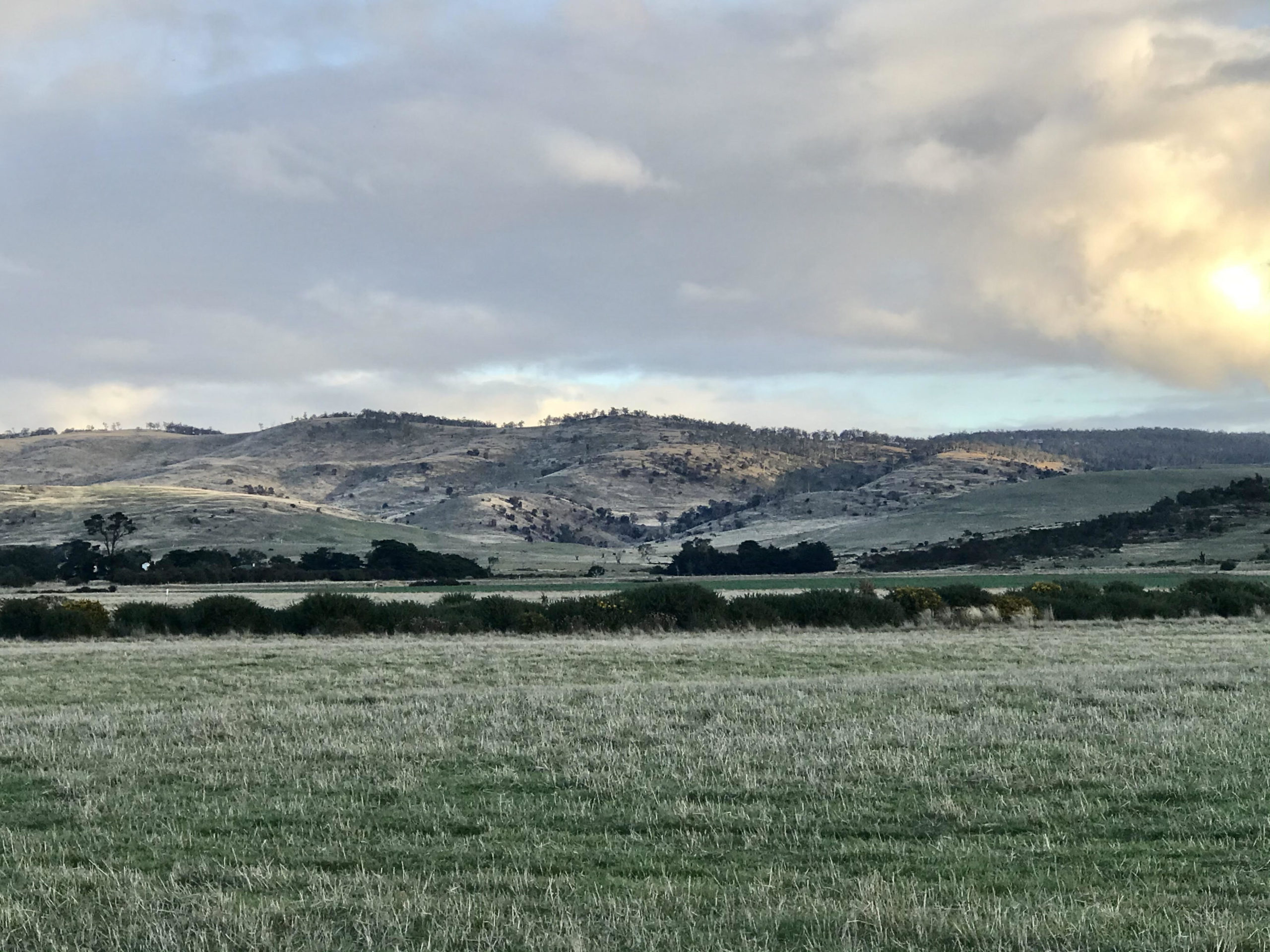10 November 2023
Re: Submission to the NSW Parliament’s Inquiry into the feasibility of undergrounding the transmission infrastructure for renewable energy projects
Farmers for Climate Action thanks the Select Committee on the Feasibility of Undergrounding the Transmission Infrastructure for Renewable Energy Projects for the opportunity to provide this submission as part of the Inquiry process.
We would welcome the opportunity to discuss with the Committee in more detail if required.
Sincerely,
Natalie Collard
CEO, Farmers for Climate Action
Email: natalie@farmersforclimateaction.org.au
Phone: 1800 491 633
Web: farmersforclimateaction.org.au
Post: Suite 327 M Centre, 11 Palmerston Lane, Manuka ACT 2603
_ _
About Farmers for Climate Action
Farmers for Climate Action is a movement of farmers, agricultural leaders and rural Australians working together to ensure Australia adopts strong emissions reduction policies by growing the number of farmers, farming communities and elected representatives championing ambitious action.
We represent more than 8,000 farmers across Australia, and our supporter base includes more than 45,000 Australians committed to deep emissions reductions across the economy this decade.
Background
Our goal is to protect the future of farms and food security. So, we strongly support the deployment of renewable energy to achieve deep emissions reduction and ensure energy security in a way that respects farmers and regional communities, to limit climate change impacts. A recent Farmers for Climate Action survey (September 2023) showed that 92% of respondents are supportive of Australia’s acceleration to more renewable energy in our national grid.
Notwithstanding our support, Farmers for Climate Action has significant concerns about the level and quality of consultation by Transmission Network Service Providers (TNSPs) and large-scale renewable projects with landholders. Many farmers in our network have shared their negative experience with TNSPs. There is a long road ahead to restore and build trust and collaborative models for coexistence, despite the urgent need for transmission and large scale renewable projects in the regions.
The most significant risk factor to achieving Australia’s renewable energy targets is the lack of regional transmission infrastructure to support large scale renewable energy generation.
This challenge is exacerbated by:
- The lack of adequate consultation with regional communities and affected landholders
- An absence of national or state policies or guidelines to create an equitable framework that supports impacted businesses and community needs; and
- The fact that regional communities can not access the clean energy their communities are hosting.
This combination of factors has created an absence of social license, and in places, resistance to large scale renewable developments and transmission infrastructure in farming communities.
Regional renewables survey insights
In September 2023, Farmers for Climate Action asked farmers to participate in a comprehensive survey about renewables on farm. The in-depth insights provided by more than 300 farmers through a 30-minute survey, offers invaluable guidance for policy formulation for all stakeholders involved in renewable energy generation, regional development and transmission.
We acknowledge the Farmers for Climate Action respondent base is biassed towards farmers who want the shift to a renewable electricity grid to succeed.
Of the farmers who responded, 111 identified as farmers from NSW.
We asked very specific questions about transmission lines with the following insights garnered from NSW farmers:
- 39% of NSW respondents reported that they already have transmission towers or lines (including old transmission and new proposed projects) on, or neighbouring, their land. When asked about the benefits and challenges of hosting transmission infrastructure:
“[We are] hoping that the passive income will assist in managing droughts and other climate variabilities.”
“We are connected! Hosting transmission is a community commitment to be proud of for the benefits it will bring to my farm in new technologies, innovation, employment, the boom in our local economy, a health benefit of feeling “part of the solution and not part of the problem”, reduced emissions’… we must build them urgently and consideration is more than welcome on my farm.”
“Biosecurity for inspection/maintenance, severe soil compaction due to heavy vehicle traffic during pole replacement. This is in part due to attempting works following periods of wet weather.”
“The loss of visual amenity prevents us from taking up opportunities in agritourism.”
“We are facing this at the moment and I can’t even begin to describe the emotional and mental stress that it is causing. This is our generational farming land that we have cared for and worked through droughts, floods, etc and the idea that because someone on a computer in a city drew a line on a map that they can just take a land and they tell us this by pegging brochures to our front gate is abhorrent. They would not threaten their own homes in this way. It should be a choice, we live in a democracy and we own the land. Individual farmers should have the choice as to whether they want these lines on their property, not get told it is going to happen.”
- Of the farmer respondents to the survey from NSW, 14% said they would be open to hosting transmission projects in the future, 15% said no and 32% said it would depend.
“I’m watching what’s happening in Victoria. If there’s an opportunity for lines to be underground, I want to understand why or how that is better than large scale transformers. Further, I’m not interested in seeing transformers on high conservation value farming land. For eg, we graze several large native grass paddocks (never cropped or put to pasture). I would never support any form of transmission (above or below ground) in these areas “
- When asked to choose the top 3 in a list of what benefits would lead to your community being more supportive of hosting transmission infrastructure 52% selected undergrounding (the national response was 55%). The full breakdown is as follows:
52% – Putting transmission infrastructure underground in certain locations
43% – More extensive and genuine community consultation around transmission projects
39% – Funding for significant community benefit programs in communities that host the infrastructure (i.e. enabling the broader community to share the financial benefits of the towers)
37% – Payments to impacted neighbours (i.e. those on adjoining properties to the transmission infrastructure)
36% – Higher annual payments to farmers for each tower they host on their land (note: payments currently vary per state between $10,000 per year per km for 25 years in Vic and one-off payments of $200,000 per km in NSW and $300,000 per km in QLD)
36% – Support for community ownership of transmission infrastructure (e.g. opportunities for the community to hold equity shares in the projects)
30% – A more reliable local energy grid, e.g. reducing brownouts / blackouts
27% – Direct financial incentives to individuals in the locality of the infrastructure, e.g. cheaper or free energy bills
Solutions
Many farmers active in this space are experiencing business limitations due to renewables projects hosted by nearby farms. The impact of overhead transmission lines which require mandated clearance areas from machinery deems some of their property unable to be farmed as centre pivots or tractors cannot operate under these lines. This creates a loss of agricultural land use by neighbouring farms which is not currently addressed in consultation or legislative processes.
Solutions as outlined below, including electricity bill discounts to postcodes with infrastructure projects and the ability for landholders to feed energy into the grid must be considered. The reality is that farming communities across Australia are being asked to bear the burden of significant infrastructure in their communities for the benefit of powering the East Coast of Australia. Unless there is a drastic change to quality and actions taken as a result of community engagement, the likelihood of achieving Australia’s target is in significant doubt.
While undergrounding new transmission lines is cited as a preferred option for many landholders, it is important to acknowledge that this approach and investment will resolve only a few of the serious concerns farmers and regional communities have regarding transmission poles and wires. Many issues will persist, predominantly linked to regional energy fairness, given regional Australians are largely excluded from the advantages of the transition to clean energy that their communities accommodate. Furthermore, many still struggle to secure reliable energy for their homes and businesses. The lack of leadership on these critical issues by governments at all levels and energy agencies has justifiably led to strong opposition within farming communities to new large-scale generation projects.
Best Practice Community Engagement
Community engagement across the country to date would suggest that TNSPs and some energy companies do not have the required background in farming communities for meaningful engagement, nor do they appear to be exploring genuine changes to business practices to address concerns raised.
Farmers are asking for a code of conduct they can trust. Developed by farmers, for farmers. A clear mandate to transmission and energy companies to do better. A code of conduct that receives broad political support to de-escalate the building political conflict surrounding the acceleration of Australia’s renewable grid. A code of conduct that builds social licence for the acceleration of Australia’s renewable grid in farming communities.
Farmers for Climate Action proposes the development of a Model Code of Conduct (MCC) to provide guidance to transmission and energy companies. The MCC would develop best practice principles for the integration of renewables and transmission alongside modern farming practices. Critically these principles should be developed by farmers, for farmers and include genuine recompense and options to mitigate unintended negative consequences where they are demonstrated to exist.
Benefit Sharing
Every effort should be put in place to encourage TNSPs and energy companies to explore improved benefit-sharing arrangements for hosts and communities, including higher annual payments to hosts, payments to impacted neighbours, and long-term funding for community benefit programs.
To enable the rapid deployment of transmission lines and renewable energy projects, it is clear that the wider regional community needs to be consulted and need to feel the positive impact of real community benefits, as well as the landholders directly impacted.
Farmers for Climate Action advocates for TNSPs and energy companies to apply electricity discounts to affected landholders and communities. An example of what this could look like is a % energy price discount for postcodes with infrastructure projects for the life of the project.
Conclusion
Farmers for Climate Action is extremely supportive of the need to deploy infrastructure to generate and transport renewable energy from where it is produced, to where it is needed. This roll out is key to achieving the deep emissions reductions we need this decade.
The lack of considered engagement and policy solutions for benefit sharing is putting our ability to meet Australia’s renewable energy targets at serious risk. Real community engagement and adequate benefit sharing are crucial solutions in this conversation.






